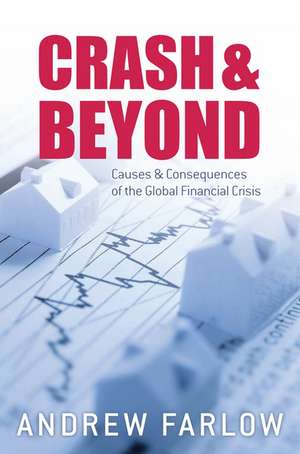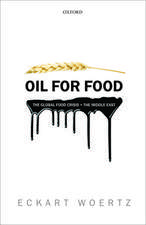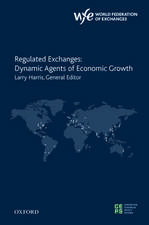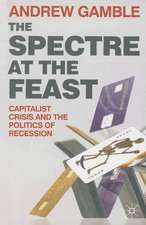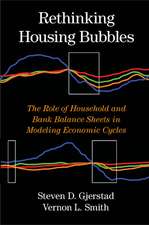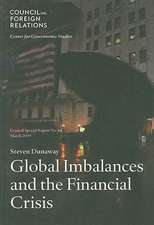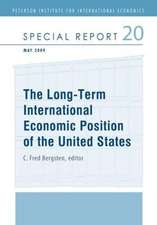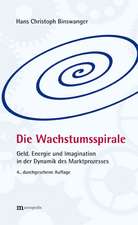Crash and Beyond: Causes and Consequences of the Global Financial Crisis
Autor Andrew Farlowen Limba Engleză Hardback – 10 noi 2012
| Toate formatele și edițiile | Preț | Express |
|---|---|---|
| Paperback (1) | 203.73 lei 32-37 zile | |
| OUP OXFORD – 11 apr 2018 | 203.73 lei 32-37 zile | |
| Hardback (1) | 333.85 lei 32-37 zile | |
| Oxford University Press – 10 noi 2012 | 333.85 lei 32-37 zile |
Preț: 333.85 lei
Preț vechi: 405.43 lei
-18% Nou
Puncte Express: 501
Preț estimativ în valută:
63.89€ • 67.18$ • 52.79£
63.89€ • 67.18$ • 52.79£
Carte tipărită la comandă
Livrare economică 07-12 aprilie
Preluare comenzi: 021 569.72.76
Specificații
ISBN-13: 9780199578016
ISBN-10: 019957801X
Pagini: 436
Dimensiuni: 162 x 241 x 31 mm
Greutate: 0.79 kg
Editura: Oxford University Press
Colecția OUP Oxford
Locul publicării:Oxford, United Kingdom
ISBN-10: 019957801X
Pagini: 436
Dimensiuni: 162 x 241 x 31 mm
Greutate: 0.79 kg
Editura: Oxford University Press
Colecția OUP Oxford
Locul publicării:Oxford, United Kingdom
Recenzii
Farlow's focus on the importance of income inequality and deficiency of demand is refreshingly Keynesian in flavour ... Crash and Beyond does much more than simply consider the causes of the crisis; it also looks to the policy response.
A lively narrative, scholarly but with lay appeal, too.
In 2004-05, [Farlow] wrote about how, after the equity bubble in the late 1990s, money was flowing into debt, especially mortgage finance, and how this could lead to another crisis. The theoretical possibility he thought of materialised soon ... The crisis gave Farlow a reputation as an economic astrologer, and brought him many invitations to speak and attest. While this book deals with the crisis, it has a broader subject ... This is not a dry and dusty book in economics; much drama has gone into it. Farlow covers the theoretical debates; but he also goes deep into the events and sequences, the errors and consequences.
Farlow's discussion of the US and European bank rescues also makes compelling reading...a fine addition to the crisis/recession discourse
Andrew Farlow has written a most entertaining book on the Financial Crash, (Before, During and Beyond), that hides considerable scholarship (a 20 page bibliography of academic papers) behind a lively tale of the human frailties revealed. If I had to recommend a single volume on what happened to the inquisitive non-expert, this would be it.
On the whole, this is a scholarly book which enriches our understanding of the crisis. Farlow does not suggest any ultimate solution. He says he would be happy if the book serves as a collective memory of the crash and its bitter aftertaste and acts as guidance or warning to handle future crises. Indeed, he has succeeded.
Very, very compelling research...refreshing...fascinating the way [Farlow] writes about it, the way [he] describes it, and the research [he] brings...in a very readable fashiondealing with extremely sophisticated systems and to boil it down to where the average person can start to really comprehend what took place so that they can better understand how to react in the futureIt is very, very important we look back and understand better what took place and make more informed decisions when it comes to our own finances or how we vote...absolutely fascinating.
Instead of a blow-by-blow account of the numerous bank rescue programmes, [Farlow's] book uses an economics lens to dissect the logic of each category of rescue measure to make them more digestible for the lay read...Half the book is devoted to the numerous policy struggles after the crash. Written before, during and in the years immediately after the crash, the book is a lively chronicle and engaging analysis of the events and thinking of these years and of the economic and political constraints that shaped response...a timely analysisa scholarly, yet highly accessible, account that will appeal to a wide audience and contribute to the public debate about the lessons to be learnt and future policy options.
A lively narrative, scholarly but with lay appeal, too.
In 2004-05, [Farlow] wrote about how, after the equity bubble in the late 1990s, money was flowing into debt, especially mortgage finance, and how this could lead to another crisis. The theoretical possibility he thought of materialised soon ... The crisis gave Farlow a reputation as an economic astrologer, and brought him many invitations to speak and attest. While this book deals with the crisis, it has a broader subject ... This is not a dry and dusty book in economics; much drama has gone into it. Farlow covers the theoretical debates; but he also goes deep into the events and sequences, the errors and consequences.
Farlow's discussion of the US and European bank rescues also makes compelling reading...a fine addition to the crisis/recession discourse
Andrew Farlow has written a most entertaining book on the Financial Crash, (Before, During and Beyond), that hides considerable scholarship (a 20 page bibliography of academic papers) behind a lively tale of the human frailties revealed. If I had to recommend a single volume on what happened to the inquisitive non-expert, this would be it.
On the whole, this is a scholarly book which enriches our understanding of the crisis. Farlow does not suggest any ultimate solution. He says he would be happy if the book serves as a collective memory of the crash and its bitter aftertaste and acts as guidance or warning to handle future crises. Indeed, he has succeeded.
Very, very compelling research...refreshing...fascinating the way [Farlow] writes about it, the way [he] describes it, and the research [he] brings...in a very readable fashiondealing with extremely sophisticated systems and to boil it down to where the average person can start to really comprehend what took place so that they can better understand how to react in the futureIt is very, very important we look back and understand better what took place and make more informed decisions when it comes to our own finances or how we vote...absolutely fascinating.
Instead of a blow-by-blow account of the numerous bank rescue programmes, [Farlow's] book uses an economics lens to dissect the logic of each category of rescue measure to make them more digestible for the lay read...Half the book is devoted to the numerous policy struggles after the crash. Written before, during and in the years immediately after the crash, the book is a lively chronicle and engaging analysis of the events and thinking of these years and of the economic and political constraints that shaped response...a timely analysisa scholarly, yet highly accessible, account that will appeal to a wide audience and contribute to the public debate about the lessons to be learnt and future policy options.
Notă biografică
Andrew Farlow, Research Fellow in Economics, Oriel College, University of Oxford, UK
